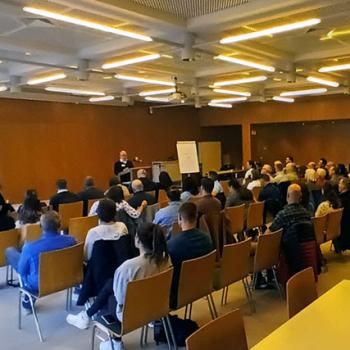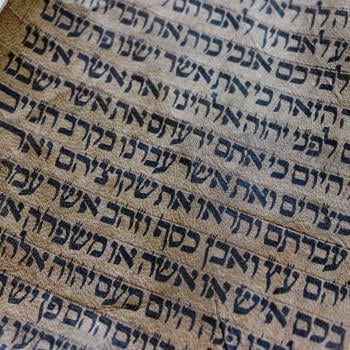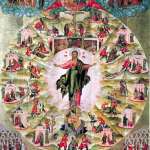The Orthodox and Catholic churches are the oldest in Christendom. They have many things in common, and there are some things that are disagreed on. The churches both have valid Apostolic Succession and valid sacraments. In fact, both observe the seven sacraments instituted by Christ, and carried on by the Apostles. A couple items that are disagreed on are the supremacy of the Roman Pontiff, and a phrase in the Nicean creed that is known as the filioque clause. What is the filioque, and what is the objection to it by the Orthodox church? In this paper these questions will be answered along with the Catholic response.
Filioque In The East And West
The western church (i.e. Catholic) uses a phrase in the creed that contains the words “and the Son” (Catholic Answers). These three words have been one of the causes of schism between the Orthodox and Catholic churches. This differs from the Orthodox usage that states that the Holy Spirit proceeds from the Father through the Son (Catholic Answers).
The Orthodox position is that the filioque was an invention of the 9th century and was erroneously added to the historic creed that was ratified in Constantinople in 381 A.D. (Tim Staples). Matthew 10:20 is also used as justification against the filioque. That passage of scripture states, “for it is not you who speak, but the Spirit of your Father speaking through you” (Mt 10:20 NRSV). The Orthodox position also states that the filioque denies that the Father is first principle among all things. Denying that the Father is the first principle of life is to confuse the persons of the Trinity (Tim Staples).
The Filioque Controversy
This is a controversy that has brewed since 1054 when the first schism between the Eastern and Western churches occurred. The schism was briefly reconciled in 1439 at the Council of Florence but was brief (William Saunders). The Catholic church today, as it did back then, answered the question of the filioque in several ways. The first objection is that the filioque was erroneously added to the creed in the ninth century. To answer this, we must look at the creed as promulgated at the Council of Constantinople in 381.
In the Greek the Creed states, “who proceeds from the Father, who together with the Father and the Son is worshipped and glorified” (William Saunders). This is the Orthodox position, and coincidentally is also what we say in the creed at every mass. When the creed was translated into Latin the filioque was added. Church Fathers at the time stated that the two said the same thing. Though the wording may be different, both uphold Trinitarian dogma and many theologians, on both sides, now say the two is a matter of semantics.
Another objection raised was regarding Matthew 10:20 which says the Spirit proceeds from the Father. The Catholic church agrees with this verse wholeheartedly, but also considers other verses in holy writ. There are many verses such as Galatians 4:6 uphold the filioque. This passage states, “And because you are children, God has sent the Spirit of his Son into our hearts, crying, “Abba! Father!” (Gal 4:6 NRSV). One verse says that the Spirit proceeds from the Father and another states that He proceeds from the Son.
The Trinity Confirmed
All three Trinitarian persons are distinctly mentioned, and The Father and the Son are described as sending the paraclete (Preuss 104) Which one is it? When we take all passages into account, we see the answer in the wording of the filioque. Affirming that the Spirit proceeds from the Father and the Son in no way undermines the first principle nature of the Father. It simply affirms scripture and reaffirms this principle.
Works Cited
Catholic Answers. Filioque. https://www.catholic.com/tract/filioque, accessed December 1, 2018.
Garrigou-Lagrange, Reginald. The Trinity and God the Creator. https://www.ewtn.com/library/THEOLOGY/TRINITY.HTM#00, accessed November 27, 2018.
Preuss, David. The Divine Trinity: A Dogmatic Treatise, https://archive.org/details/divinetrinityad00pohlgoog/page/n114, accessed November 28, 2018.
Saunders, William. The Wording of the Nicene Creed. https://www.ewtn.com/library/ANSWERS/FILIOQUE.HTM, accessed November 30, 2018.
Staples, Tim. The Filioque Controversy. https://www.catholicculture.org/culture/library/view.cfm?recnum=9277, accessed November 29, 2018.

















